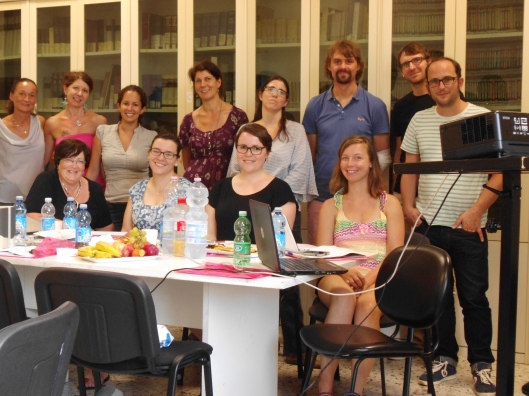From 8–10 September 2016, German language lecturers Veronika Koeper-Saul and Anke Bohm attended a meeting of the European University Tandem (EuniTa) Erasmus+ project in Florence. In this short Q+A, they tell us a bit about the project and the outcomes of the meeting.
So, what is EuniTa?
Basically, EuniTa is like our ‘Conversation Exchange’, where language learners are matched up with native speakers of the language they are learning so that each can learn from each other. This Erasmus+ project uses the concept to create an electronic exchange platform geared at university students.
Who is creating this platform?
It’s a co-operation between seven European universities: the University of Liverpool, the University of Exeter, the Université de Poitiers, the Université Paris Sorbonne, the Universitat Blaquerna Ramon Lull Barcelona, the Università degli Studi Firenze, and the Goethe University Frankfurt.
How will the platform work?
Visually, imagine a cross between Facebook and Skype, with a timeline, video and messaging facilities, and the added bonus of language learning materials, support and even certification. To start an exchange, we’ll have an automatic matching system based on self-declared student details such as native and target languages and preferences such as whether the age or university subject is important to you.
What are your specific contributions to the project so far?
We have already created graded conversation guides on the topics of ‘Health and Sports’ and ‘Daily Life’, which will be uploaded to the platform. The language levels are labelled according to the Common European Framework of Reference for Languages (A1 to C2), so if you are really into these topics you can have more and more advanced conversations about topics from the same categories and clearly see your progress. There will be lots of other topics, too, of course, created by our partners and sifted by ourselves.
What are the next steps?
Following discussions in Florence, we will now format our materials to a common design, add media such as pictures and videos, and prepare further specialist conversation guides for students of science and health subjects. The idea here is to help students of medicine or life sciences, for example, prepare for the kind of speaking required on a study abroad period or even give papers at conferences. Very soon we will also select some Liverpool students to test the platform and then help remedy any problems that might crop up.

